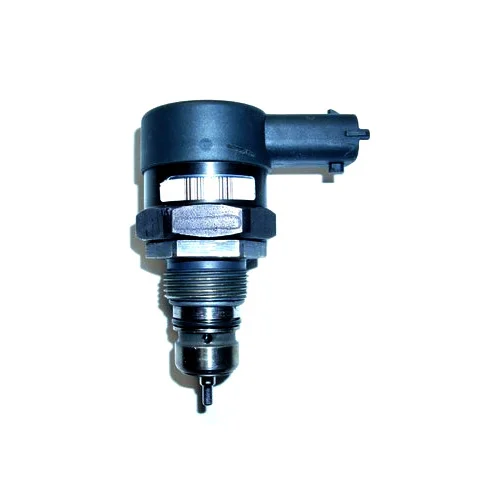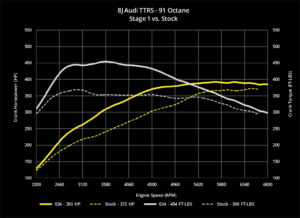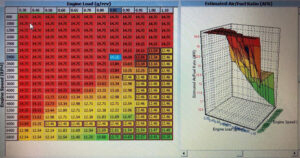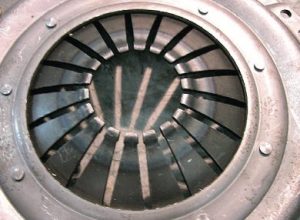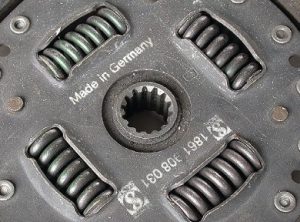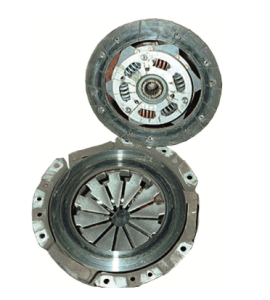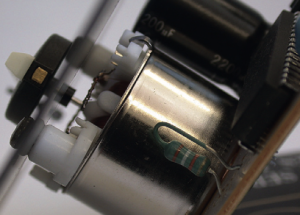A fuel pressure regulator valve is an important component of a fuel delivery system in a vehicle. It regulates the pressure of fuel going to the engine, ensuring that the fuel injectors receive a constant and optimal fuel pressure to function properly. A closed fuel pressure regulator valve can lead to various issues and can cause damage to your engine.
When the fuel pressure regulator valve is closed, it means that it is not allowing any fuel to flow through it, resulting in a complete stoppage of fuel supply to the engine. This can cause various issues, such as engine stalling, difficulty starting the engine, and poor performance. A closed fuel pressure regulator valve can also cause the engine to run rich, which means that there is too much fuel and not enough air in the combustion chamber, leading to incomplete combustion and the production of harmful emissions.
There can be various reasons why a fuel pressure regulator valve is closed. One of the most common causes is a faulty valve. If the valve is damaged or worn out, it can get stuck in the closed position, preventing any fuel from flowing through it. Another reason could be a clogged fuel filter, which can cause a decrease in fuel pressure, and in turn, cause the regulator valve to close. A clogged fuel filter can also cause damage to the fuel pump, leading to a complete stoppage of fuel supply to the engine.
It is essential to keep your fuel pressure regulator valve in good condition to ensure proper engine performance and avoid costly repairs. Regular maintenance and inspection can help detect any issues with the valve before they become more serious. If you notice any signs of a closed fuel pressure regulator valve, such as engine stalling or difficulty starting the engine, it is crucial to have your vehicle inspected by a qualified mechanic.
In conclusion, a closed fuel pressure regulator valve can cause various issues with your vehicle’s engine and can lead to costly repairs if left unaddressed. Regular maintenance and inspection can help detect any issues with the valve before they become more serious, ensuring optimal engine performance and avoiding costly repairs. If you suspect any issues with your fuel pressure regulator valve, it is essential to have your vehicle inspected by a qualified mechanic.
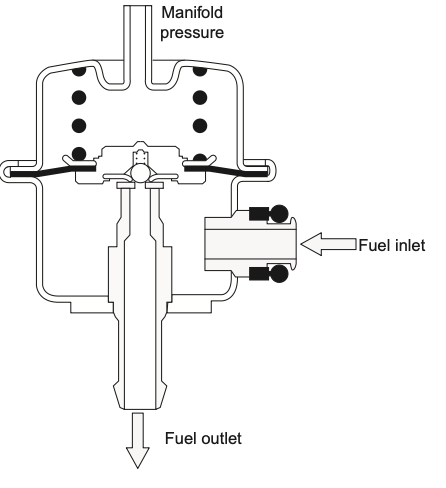
As I mentioned earlier, the fuel pressure regulator valve is responsible for regulating the pressure of fuel going to the engine. It achieves this by controlling the flow of fuel back to the fuel tank, which helps maintain a constant pressure in the fuel rail. This pressure is critical to the proper functioning of the fuel injectors, which atomize the fuel and inject it into the combustion chamber.
A closed fuel pressure regulator valve can cause a variety of symptoms, including:
- Engine stalling or difficulty starting: A closed fuel pressure regulator valve can cause a sudden drop in fuel pressure, which can result in the engine stalling or difficulty starting.
- Poor engine performance: If the fuel pressure regulator valve is closed, it can cause the engine to run rich, which means that there is too much fuel and not enough air in the combustion chamber. This can result in incomplete combustion and poor engine performance.
- Check engine light: If the fuel pressure regulator valve is closed, it can cause the check engine light to come on. This is because the engine control module (ECM) monitors the fuel pressure and can detect when it falls outside of the expected range.
There are several reasons why a fuel pressure regulator valve can become closed, including:
- A faulty valve: Over time, the fuel pressure regulator valve can become worn or damaged, which can cause it to get stuck in the closed position.
- A clogged fuel filter: If the fuel filter becomes clogged, it can cause a decrease in fuel pressure, which can cause the fuel pressure regulator valve to close.
- A failed fuel pump: If the fuel pump fails, it can cause a complete stoppage of fuel supply to the engine, which can cause the fuel pressure regulator valve to close.
It is essential to have your vehicle inspected by a qualified mechanic if you suspect that there is an issue with your fuel pressure regulator valve. A mechanic can perform a fuel pressure test to determine if the fuel pressure regulator valve is closed or not functioning properly. They can also inspect the fuel filter and fuel pump to determine if there are any issues with these components.
In conclusion, a closed fuel pressure regulator valve can cause a variety of issues with your vehicle’s engine and should be addressed promptly to avoid costly repairs. Regular maintenance and inspection can help detect any issues with the valve before they become more serious, ensuring optimal engine performance and avoiding costly repairs.
Fuel pressure regulator valves play a critical role in ensuring proper fuel delivery to the engine. Like any automotive component, fuel pressure regulator valves have advantages and disadvantages. Let’s take a look at some of them:
Advantages:
- Regulates fuel pressure: The primary advantage of a fuel pressure regulator valve is that it regulates the fuel pressure going to the engine. This ensures that the engine receives a constant and optimal fuel pressure, which is critical to proper engine performance.
- Helps maintain fuel efficiency: By regulating the fuel pressure going to the engine, fuel pressure regulator valves can help maintain fuel efficiency. This is because the engine receives the right amount of fuel, which helps optimize fuel consumption.
- Improves engine performance: Fuel pressure regulator valves can improve engine performance by ensuring that the fuel injectors receive a constant and optimal fuel pressure. This can result in smoother operation, improved acceleration, and better overall engine performance.
Disadvantages:
- Can become clogged: Fuel pressure regulator valves can become clogged over time, which can result in decreased fuel pressure and poor engine performance. Clogged fuel pressure regulator valves can also cause the engine to run rich, which can lead to increased emissions and decreased fuel efficiency.
- Can become damaged: Like any automotive component, fuel pressure regulator valves can become damaged or worn over time. This can result in the valve failing to regulate fuel pressure properly, which can lead to poor engine performance.
- May require replacement: If a fuel pressure regulator valve becomes damaged or fails to function properly, it may need to be replaced. This can be a costly repair, depending on the make and model of the vehicle.
In conclusion, fuel pressure regulator valves are an essential component of a vehicle’s fuel delivery system. While they have several advantages, such as regulating fuel pressure and improving engine performance, they can also become clogged, damaged, or require replacement. Regular maintenance and inspection can help detect any issues with the valve before they become more serious, ensuring optimal engine performance and avoiding costly repairs.

